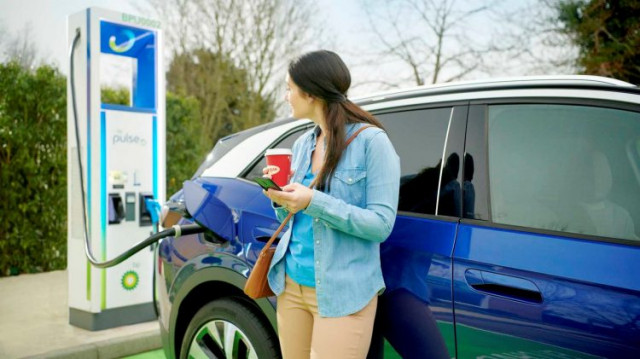British oil and gas major bp is making its largest-ever EV charging infrastructural investment of about £1 billion over the next 10 years in the United Kingdom. With this, bp's EV business arm – bp pulse – is set to approximately triple its number of charging points by 2030.
The investment will allow bp pulse to deliver more rapid and ultra-fast chargers in key locations in the country, expand fleet products and services, and launch new home charge digital products and services to enhance the customer experience.
bp says that it is stepping up its investments to meet UK's fast-growing demand for EV charging, and support the country's transition to low carbon transportation for both consumers and fleet vehicles, while also supporting hundreds of new jobs in the country.
"This £1 billion investment is vital to provide the charging infrastructure the UK needs.We're investing to build a world-class network. This investment allows us to deliver more. More high-speed charging in dedicated hubs and on existing fuel and convenience sites. More home charging services. And crucial enhancements to our digital technology that will make charging fast, easy and reliable", said Richard Bartlett, senior vice president, bp pulse.
The latest investment will accelerate the roll out of bp pulse's state-of-the-art 300 kW and 150 kW ultra-fast charging points that are able to provide EV drivers up to 100 miles of range in around 10 minutes of charging, depending on their electric cars. Its current EV charging technology across its public charging network will also be upgraded to improve reliability, the company said.
bp pulse also aims to play a significant role in helping to electrify the UK's fleet vehicles and intends to help accelerate the roll-out of EV charging solutions to the UK's businesses. It is already working with the UK's largest fleet Royal Mail, Uber and emergency services in both London and Scotland.
bp has vowed that for every £1 it makes in the UK this decade, it aims to spend £2, including investments to help the UK towards net zero. Apart from e-mobility, bp is planning to develop 5.9 GW of offshore wind capacity across the Irish Sea and North Sea.
Further, the company also plans to produce 1.5 GW of low carbon hydrogen in Teesside, which is about 30 percent of the UK's 2030 target, from its H2Teesside and HyGreen Teesside projects.
Read More

